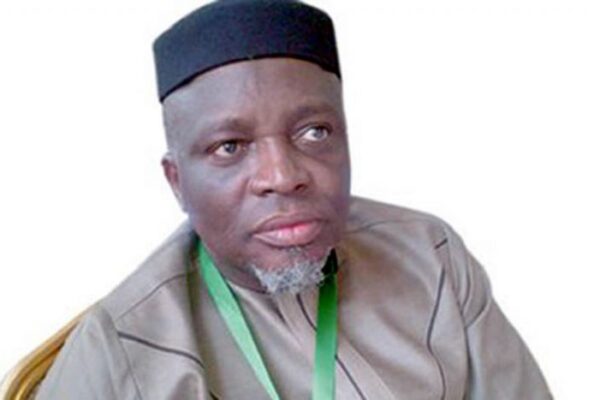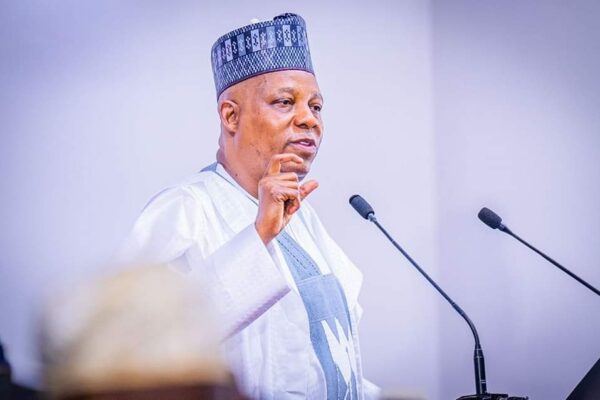Nigeria free trade zones boast of $46.6bn investments attraction
Free trade zones in the country under the Nigeria Export Processing Zones Authority (NEPZA) and Oil and Gas Free Zones Authority (OGFZA) have attracted over $46.6bn investments into the nation’s economy.
Managing Director/Chief Executive Officers of NEPZA and OGFZA, Prof Adesoji Adesugba and Senator Tijjani Kaura, disclosed in Abuja at the 30th anniversary celebration of free trade zones scheme in Nigeria.
While NEPZA on one hand have attractive over $30 billion investment sice it was established in 1992, OGFZA on other hand have attracted $16.6 billion sice it was established in 1992.
Adesugba while speaking said NEPZA regulates 46 trade zones out of which 44 are private-owned and two fully owned and managed by the Authority on behalf of government.
He said the two zones being managed by NEPZA are currently undergoing a process of concession to private entities, Adesugba commended President Muhammadu Buhari for his support which has seen to the coming on board of 13 free trade zones.
His said: “The presence of key global enterprises in the Zones is a testament to this assertion in speedily contributing to the growth of the Nigerian economy.
“Currently, NEPZA exercises regulatory oversight on 46 Free Trade Zones, out of which forty-four (44) are private-owned and two (2) fully owned and managed by the Authority on behalf of government. Even the two (2) are undergoing a process of Concession to private entities.
“These business enclaves harbour over 600 enterprises providing 150,000 direct employment and an estimated 400,000 indirect employment. To date, the Zones have attracted over US$30 billion investments which is expected to exponentially increase in the next few years with our sustained incentives and aggressive investment drive across the world.
“The future is bright for the Free Trade Zone scheme in Nigeria and again, we express our profound appreciation to the President Muhammadu Buhari-led administration for the approval given for the establishment of six Special Economic Zones and the earmarking of four International Airports as Free Trade Zones in 2021.”
Adesugba, said several reforms have been introduced since assumption of office as Managing Director of NEPZA.
“Since my appointment on 1st July, 2020 as the Managing Director and Chief Executive Officer of the Authority, 2020 which was at the height of the COVID-19 pandemic, I galvanized the management and staff to adopt strategies to reposition the agency for efficient and effective service delivery.
“This entailed a number of reforms to position the scheme for global competitiveness. During this period, the Authority has established: Special Economic Zones Dispute Resolution Centre to mediate in disputes among operators in the Zones.
“Special Economic Zones Security outfit to professionally secure lives and investments in the Zones. Special Economic Zones Training Institute, Kano to help bridge the knowledge gap in the Free Zones Scheme. Automated platform to digitize the operations of the scheme for enhanced efficiency and accountability.
“Furthermore, the Authority has recorded these modest achievements: Commissioning of the five-storey building at Victoria Island, Lagos. Developing 25MW Power infrastructure each at Calabar and Kano Free Trade Zones.
“High-profile capital projects at Calabar and Kano Free Trade Zones and Special Economic Zones in Funtua, Ilorin and Lagos.”
On his part, the Managing Director/CEO OGFZA, Tijjani Kaura, sai the authority has attracted $16.6 billion investments to Nigeria since inception in 1996.
“Between 1996 and now, the zones have attracted over 200 Companies with over $16.6 billion and created over 200,000 direct and indirect jobs, thereby contributing to local content development.
Sen. Kaura, said the free trade zones have recorded some gains amid several challenges confronting them.
With the theme ‘Nigeria Special Economic Zones Scheme: Evolvement, Challenges and Way Forward To Economic Growth and Sustainability’, Sent. Kaura said it will open discussions that will benefit industry participants and Special Economic Zones in the continent.
“The objectives of the scheme which encompass driving industrialization via export promotion, technology, skills and knowledge transfer, job creation, local and foreign direct investment attractiveness has however, not been without challenges over the years.
“Notwithstanding the enormous challenges, the FZ scheme has recorded significant milestones within the last thirty years.
“Regardless of the achievements made so far, the scheme in Nigeria still lags in delivering key economic developmental indices compared to what has been attained by Free Zone schemes in other locations.
“Thus, one of the expected take-aways from this anniversary is for all stakeholders to deliberate and interact with the aim of evolving a sustainable strategic and perspective roadmap that will enhance the development and attractiveness of scheme in Africa.
“This conference offers us an opportunity to evaluate the status of the Free Zones Scheme, assess our performance since inception, and examine how we have evolved, then deliberate and collectively chart a growth-oriented approach to improving the scheme.”
The OGFZA boss expressed concerns that while many developed countries continue to leverage fully on the free trade zones scheme to shore up their economies, same could not be said of Nigeria and other African countries.
“The scheme has been used to boost economies of nations around the globe, while depleting African resources. We hope to change the tide and narrative in the spirit of shared prosperity, by harnessing the enormous human, intellectual and natural resource capacities that Africa is endowed with. In order to effectively harness these, we can no longer work in silos.
“It may interest you to know that the earliest formal Free Zone Scheme in Africa started in 1885 when the Berlin Conference agreement was signed, but without an African representation. Specifically, the Niles, Congo and Niger Rivers were Free Trade Zones. Thanks to the African Continental Free Trade Agreement that is driven by Africans and geared towards achieving an African continental integrated economy, ” he said.
—————————————————————————————————————————————
Your help to our media platform will support the delivery of the independent journalism and broadcast the world needs. Support us by making any contribution. Your donation and support allows us to be completely focus, deeply investigative and independent. It also affords us the opportunity to produce more programmes online which is a platform universally utilised.
Thank you.
Please click link to make – DONATION









